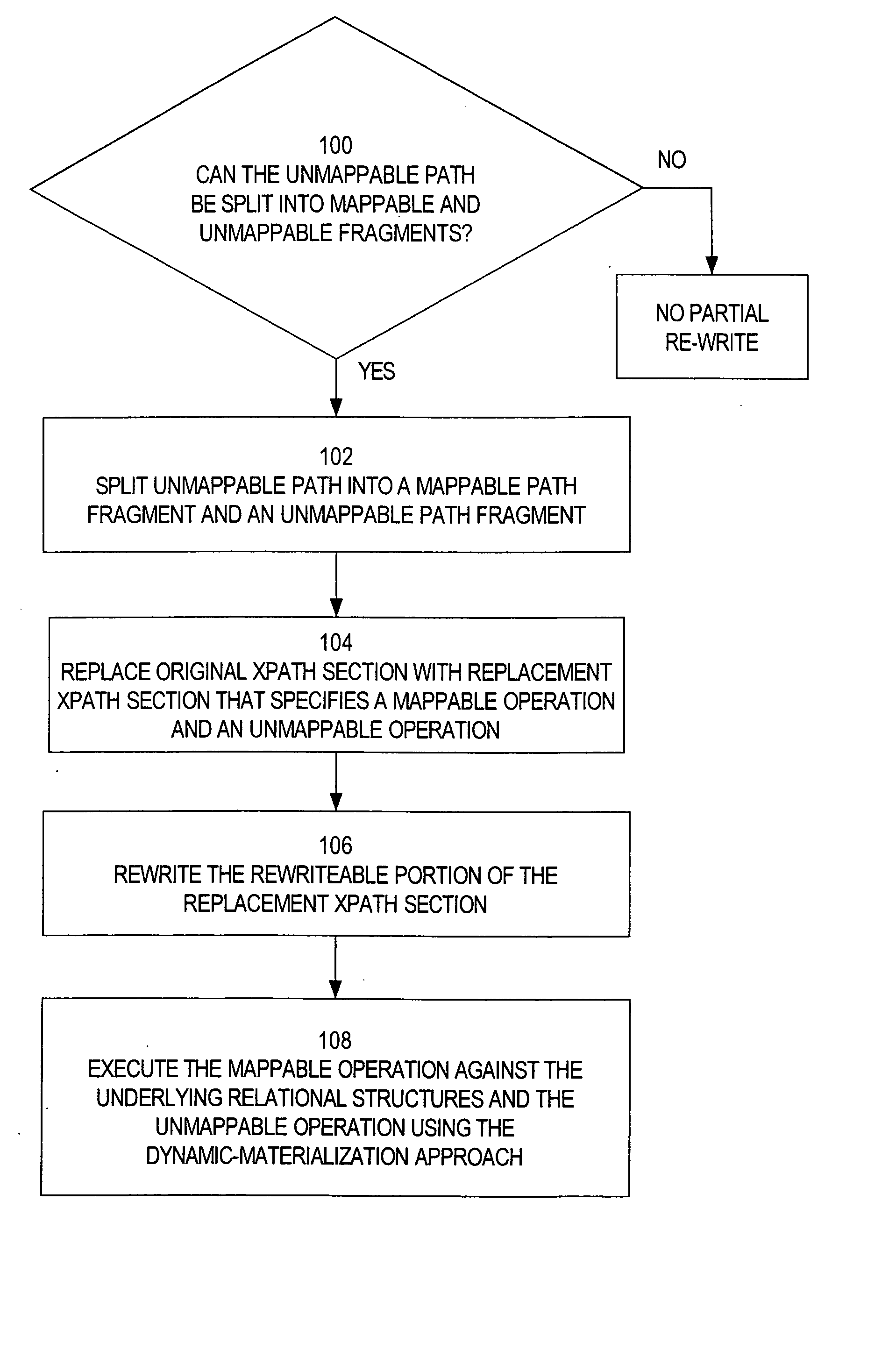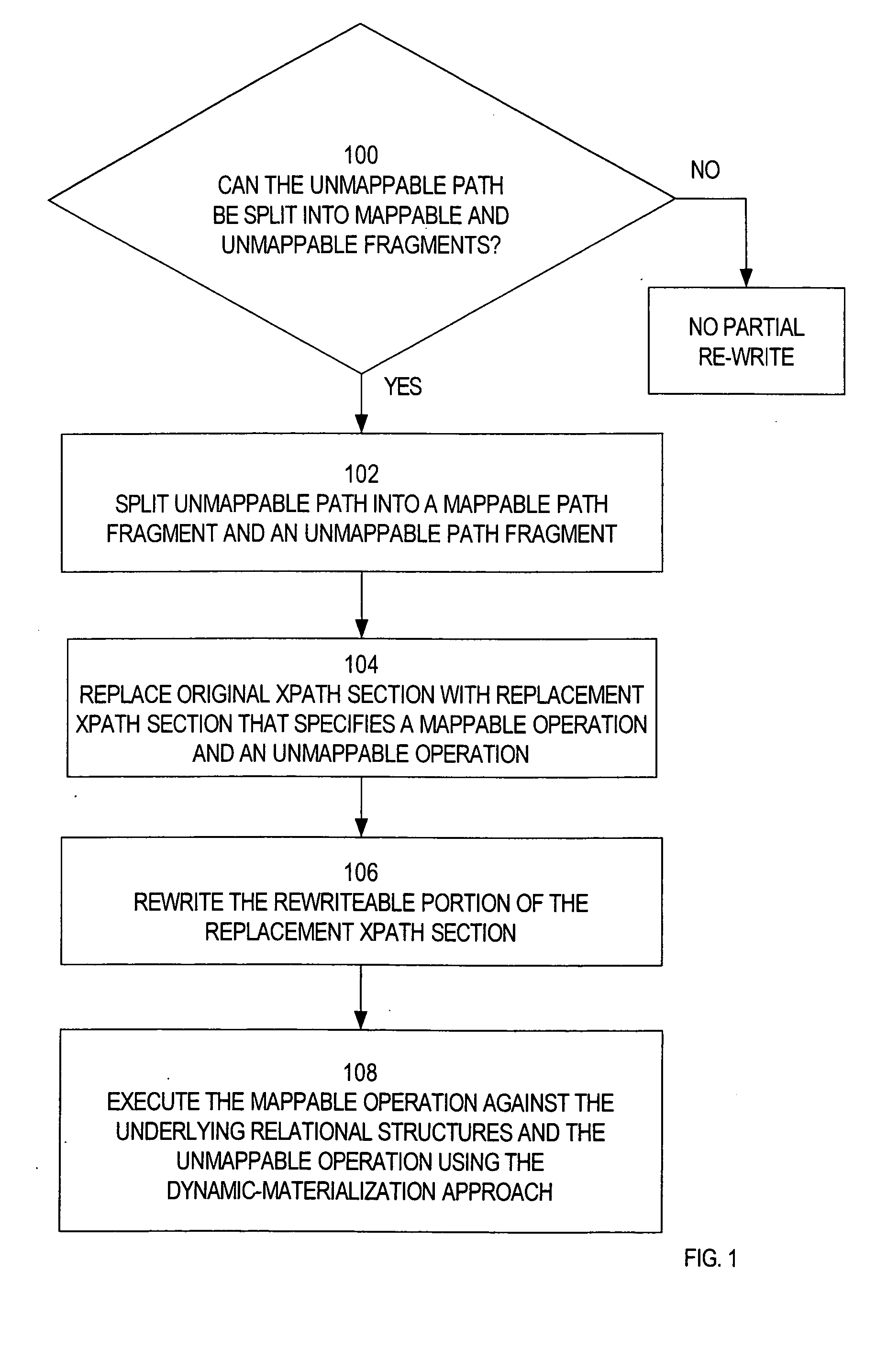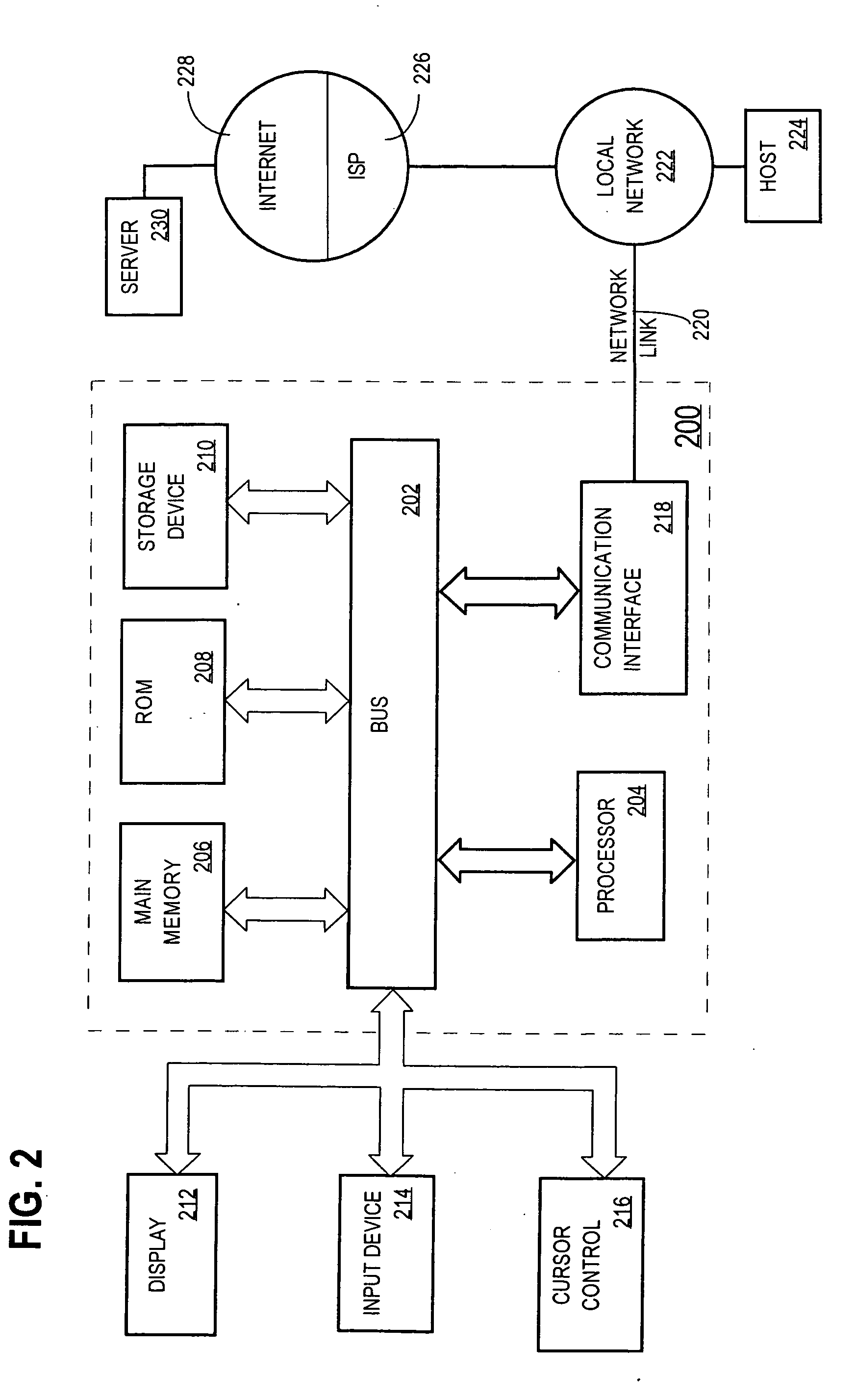Techniques for partial rewrite of XPath queries in a relational database
a technology of relational database and xpath query, applied in the field of processing queries, can solve the problems of insufficient storage and retrieval of data en bloc, inability to fully rewrite xpath query,
- Summary
- Abstract
- Description
- Claims
- Application Information
AI Technical Summary
Benefits of technology
Problems solved by technology
Method used
Image
Examples
Embodiment Construction
[0024] In the following description, for the purposes of explanation, numerous specific details are set forth in order to provide a thorough understanding of the present invention. It will be apparent, however, that the present invention may be practiced without these specific details. In other instances, well-known structures and devices are shown in block diagram form in order to avoid unnecessarily obscuring the present invention.
Functional Overview
[0025] Techniques are described hereafter for executing queries that have XPath sections that specify unmappable paths. The techniques involve splitting the unmappable paths into (1) a mappable path fragment, and (2) an unmappable path fragment. After an unmappable path has been split into a mappable path fragment and an unmappable path fragment, the XPath section is replaced with a replacement XPath section.
[0026] The replacement XPath section specifies two operations which, when executed, produce the same result as the XPath opera...
PUM
 Login to View More
Login to View More Abstract
Description
Claims
Application Information
 Login to View More
Login to View More - R&D
- Intellectual Property
- Life Sciences
- Materials
- Tech Scout
- Unparalleled Data Quality
- Higher Quality Content
- 60% Fewer Hallucinations
Browse by: Latest US Patents, China's latest patents, Technical Efficacy Thesaurus, Application Domain, Technology Topic, Popular Technical Reports.
© 2025 PatSnap. All rights reserved.Legal|Privacy policy|Modern Slavery Act Transparency Statement|Sitemap|About US| Contact US: help@patsnap.com



